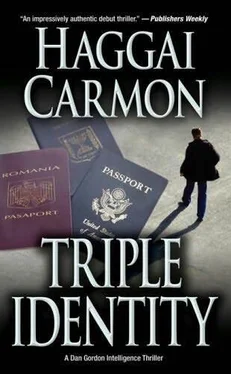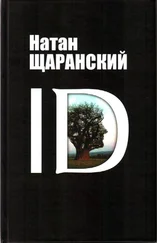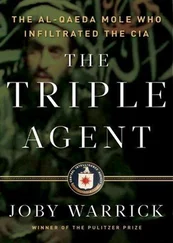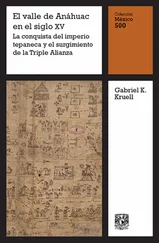Haggai Carmon - Triple Identity
Здесь есть возможность читать онлайн «Haggai Carmon - Triple Identity» весь текст электронной книги совершенно бесплатно (целиком полную версию без сокращений). В некоторых случаях можно слушать аудио, скачать через торрент в формате fb2 и присутствует краткое содержание. Жанр: Триллер, на английском языке. Описание произведения, (предисловие) а так же отзывы посетителей доступны на портале библиотеки ЛибКат.
- Название:Triple Identity
- Автор:
- Жанр:
- Год:неизвестен
- ISBN:нет данных
- Рейтинг книги:4 / 5. Голосов: 1
-
Избранное:Добавить в избранное
- Отзывы:
-
Ваша оценка:
- 80
- 1
- 2
- 3
- 4
- 5
Triple Identity: краткое содержание, описание и аннотация
Предлагаем к чтению аннотацию, описание, краткое содержание или предисловие (зависит от того, что написал сам автор книги «Triple Identity»). Если вы не нашли необходимую информацию о книге — напишите в комментариях, мы постараемся отыскать её.
Triple Identity — читать онлайн бесплатно полную книгу (весь текст) целиком
Ниже представлен текст книги, разбитый по страницам. Система сохранения места последней прочитанной страницы, позволяет с удобством читать онлайн бесплатно книгу «Triple Identity», без необходимости каждый раз заново искать на чём Вы остановились. Поставьте закладку, и сможете в любой момент перейти на страницу, на которой закончили чтение.
Интервал:
Закладка:
I tentatively turned the key in the ignition. No surprises. The engine roared to life and I drove off.
Though still on high alert I calmed down somewhat, scanning the streets as I drove. As I pulled up at a stoplight, I took a brief but thorough look at a couple of types in a blue Mercedes parked across the street. They were staring at me. Something about their appearance made me suspect they were not a natural part of the landscape. Military-type men, somber looking – are they on assignment? A scene from a black-and-white Hollywood movie ran fast-forward before my eyes. Soon one dark-skinned guy sitting in the car would jump out in front of me with a gun, shout something in an indistinct language, and start spraying the area with bullets. I'd run for cover, pull out the . 22-caliber Beretta, aim with both hands (true to my Mossad training), and unload the entire clip into his head, watching as he collapsed in slow motion.
I smiled at the thought, culled from the many detective stories I'd read in my teenage years in Israel. These men were probably Turkish or Albanian gastarbeiter, guest workers, waiting for a friend to return from a visit to the nearby hospital. Besides, I was not armed.
The light turned green. I sped away.
Fantasy intrigues many people, because a mere glimpse into the world beyond the horizon changes everything, taking one into a wild twilight zone. As for myself, I need reality. It makes me strong and confident.
I was beginning to like the new challenge of this case. It would be a refreshing change from the routine of tracing crooks through endless reviews of paper trails, bank statements, and the smell of spilled coffee on documents and files retrieved through subterfuge and deception. Even the “social engineering,” the current politically correct phrase for befriending a target to elicit information, would have to happen on a different level. This time the action was in the present tense. In all my other Department of Justice cases during my ten-year service as an investigative attorney, I was called in after the fact, after the crook had taken off with the money, after the money had been laundered, after the best lawyers and accountants money can buy had buried the money so deep in a warren of offshore trusts and shell companies that it would take an expert miner to dig it out. I was one of those expert miners, not a homicide detective. My target's sudden murder put my asset-recovery investigation into a whole new league. I wasn't complaining, though. I had to report my findings to David Stone, my boss at the U.S. Department of Justice, and thought it would be best to do it from the American Consulate through a secure phone. Clearly, murder made the case far more than a hunt for money.
But first I drove back to my hotel. I needed a shower to wash off the smell of the morgue. I also wanted to get some sense of whether the homicide was relevant to my assignment before getting a taste of the bureaucracy at the consulate.
Half an hour later, feeling a lot cleaner and wearing a standard soft hotel bathrobe, I opened my room safe and put in the documents Stone had given me two weeks ago. There was the usual stuff, all of which fell under the category of “Unclassified, but Sensitive” documents: the fact sheet on DeLouise containing his photo, bio, and vital statistics; a copy of his California driver's license, and the FDIC, the Federal Deposit Insurance Corporation, report. Nothing classified for national security purposes, but documents that could still damage our case if they fell into the wrong hands.
I dressed and started to leave my room but changed my mind. I felt as if I'd walked in on the middle of an action movie. Events were taking place quickly, and I was trying to catch up. In such a case, caution was never a bad policy.
I took an airline magazine from the coffee table and found an article describing the art treasures of the Orient. I highlighted several paragraphs at random with a yellow marker, took the DeLouise file from the safe, and locked up the magazine instead. I snapped a hair from my head, wet my finger with my saliva, and placed the hair carefully over the wooden door hiding the safe. When I returned, I would be able to tell immediately whether someone had tried to open the safe. Even if the safe were opened, the highlighted article in the magazine would be a puzzle for anyone trying to check out my papers. Alex, my Mossad Academy team instructor, had taught me that “Not only must you maintain combat-zone security during operations but also leave ‘land mines’ behind.” The highlighted portion of the magazine would lead any snooper to wonder what was so important in a magazine article that it had to be locked behind a steel door.
Hotel-room safes are simple to open. Many guests forget the pass code or check out leaving the safe empty but locked, so hotel managements have had to devise ways to open them. All hotel security officers have a small wrench with which they remove the front panel of the electronic lock. You can do it in a minute if you know how. Obviously, such a wrench is readily obtained. With Alex's warning permanently imprinted in my mind, I never deposited anything valuable in a hotel-room safe. A hotel vault is much more reliable, because two separate keys are required: the guest keeps one, the hotel the other. Nevertheless, we were instructed in the Mossad to use a hotel central safe only for documents deemed to be at a “limited” confidentiality level, two grades of confidentiality below “Secret.” Combatants, the term used for Mossad officers working outside Israel, store all other documents at the local Israeli Embassy's vaults.
I no longer worked for the Mossad, but old habits are hard to break. Apparently, this sort of thing becomes second nature after a while.
Alex had repeatedly indicated that we must adhere to safety and security procedures at all times. “In the field,” his favorite term, meaning anywhere beyond our desks, “always look around you, physically and mentally. If you're not working alone, keep eye contact with your team; either hang together or be hanged together. You never know where the blow will come from. It's the guy you don't see who'll shoot you down.”
Seeing DeLouise's body stretched out on a morgue slab had sharpened my senses. If I found that the strand of hair had been moved, I'd go into combat-level security for everything.
I took my file folder, went to the lobby, and deposited the folder in the hotel safe.
I drove through the bustling traffic of Munich to the American Consulate. Security around the building was very tight. Saddam Hussein had invaded Kuwait several weeks earlier and the world was tense. The United States had increased security around all its embassies and consulates, no matter how friendly the host country. Concrete barriers blocked one lane of the street to keep traffic from getting too close to the building. The terrible U.S. Embassy suicide car bombing in Beirut in 1983 that killed sixty-three people – seventeen of whom were Americans and eight of whom worked for the CIA – was still a vivid memory.
German policemen wearing bulletproof vests and holding German shepherds on short leashes were everywhere. I waited patiently at the end of the long line to enter the consulate. I passed through a metal detector and went to the reception booth. A Marine was sitting behind one-inch-thick bulletproof glass.
“I'm here to see the legat,” I said showing him my Justice Department ID.
“Hold on, sir,” he said, and picked up the phone. He handed me a visitor's badge and buzzed the heavy glass door separating the entry hall from the lobby.
“Mr. Lovejoy's office is on the third floor, sir, and the elevator is just past the lobby.”
“Thanks,” I said, and went inside.
A tall, rosy-cheeked blond woman in her midtwenties met me as I exited the elevator on the third floor. She wore an American Consulate photo ID around her neck.
Читать дальшеИнтервал:
Закладка:
Похожие книги на «Triple Identity»
Представляем Вашему вниманию похожие книги на «Triple Identity» списком для выбора. Мы отобрали схожую по названию и смыслу литературу в надежде предоставить читателям больше вариантов отыскать новые, интересные, ещё непрочитанные произведения.
Обсуждение, отзывы о книге «Triple Identity» и просто собственные мнения читателей. Оставьте ваши комментарии, напишите, что Вы думаете о произведении, его смысле или главных героях. Укажите что конкретно понравилось, а что нет, и почему Вы так считаете.











